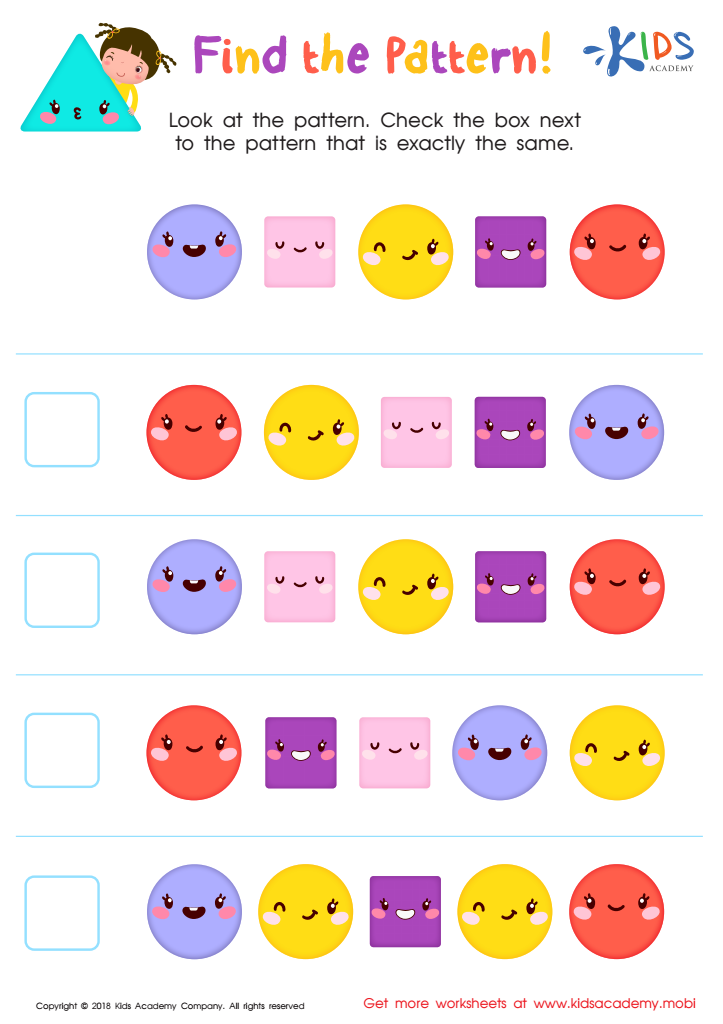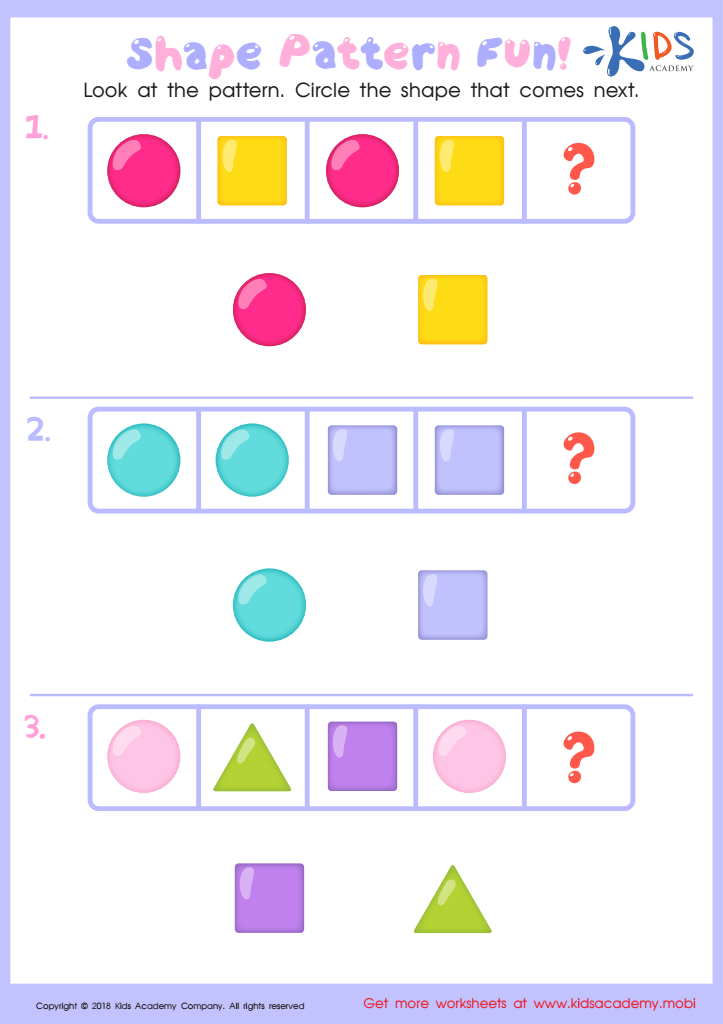Pattern recognition Geometry Worksheets for Ages 3-8
3 filtered results
-
From - To
Explore our engaging Pattern Recognition Geometry Worksheets designed for children ages 3-8! These interactive activities foster critical early math skills through vibrant images and relatable patterns. Kids will identify shapes, colors, and sequences, enhancing their cognitive development and boosting their confidence in math. Each worksheet is thoughtfully crafted to align with educational standards, ensuring a fun learning experience. Perfect for use at home or in the classroom, these worksheets make learning geometry exciting and accessible. Encourage your child's love for math as they recognize and create patterns! Download now and watch their skills blossom through playful exploration and practice!


Find the Pattern Worksheet


Make the Same Pattern Worksheet


Shape Pattern Fun Worksheet
Pattern recognition in geometry is a crucial skill for children aged 3-8, laying the foundation for mathematical understanding and problem-solving abilities. By learning to identify, create, and extend patterns, young learners develop critical thinking and observational skills that are applicable across various subjects. Patterns are not just abstract concepts; they are integral to understanding relationships, sequencing, and structures in the world around us.
For parents and teachers, fostering pattern recognition enhances cognitive development. Engagement with geometric patterns helps children refine their spatial awareness, which is essential in everyday tasks, from organizing their materials to navigating their environment. Additionally, recognizing patterns aids in numerical understanding, as mathematics heavily relies on patterns in addition, subtraction, and ultimately more complex operations.
Supporting children in this area also improves their abilities in reasoning and creative thinking. Completing patterned sequences can boost confidence and perseverance in solving challenges. Furthermore, incorporating patterns into play and exploration aligns with developmental learning, making education enjoyable and relatable. Overall, focusing on pattern recognition in geometry equips children with the strategies and skills necessary to succeed in school and makes everyday connections to their learning, setting the stage for lifelong mathematical competence.
 Assign to My Students
Assign to My Students































